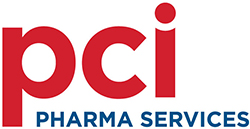Robert Misher enjoys building companies, as is evident when you look at his career path. And he has a track record of success, having built up several pharma businesses in his 30-year career.
After graduating with a BSc in Chemistry in the 1970s from Widener University in PA, US, Misher quickly decided that he did not want to work in a lab. Instead he took a packaging engineering job and over the next 10 years he learned about pharmaceutical manufacturing at companies including Wyeth and Boehringer Ingelheim.
But after a decade of working in large corporations, he had a ‘wild notion’ to become an entrepreneur and set up his own company. With the encouragement of his wife and family, in 1991 he founded BlisTech, a clinical supply contract packing organisation. He set up the company with two colleagues – one a former supplier to Boehringer Ingelheim and the other an angel investor. ‘We were involved in contract clinical supply and there weren’t many companies in the field at that time,’ he says.

